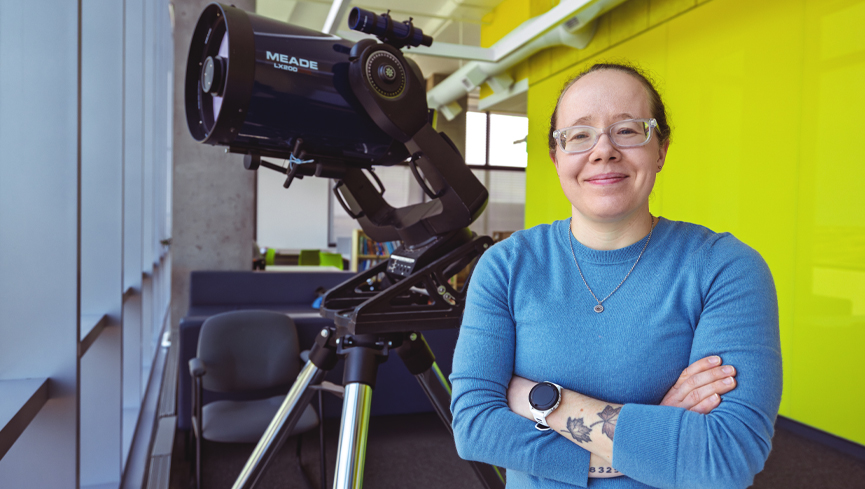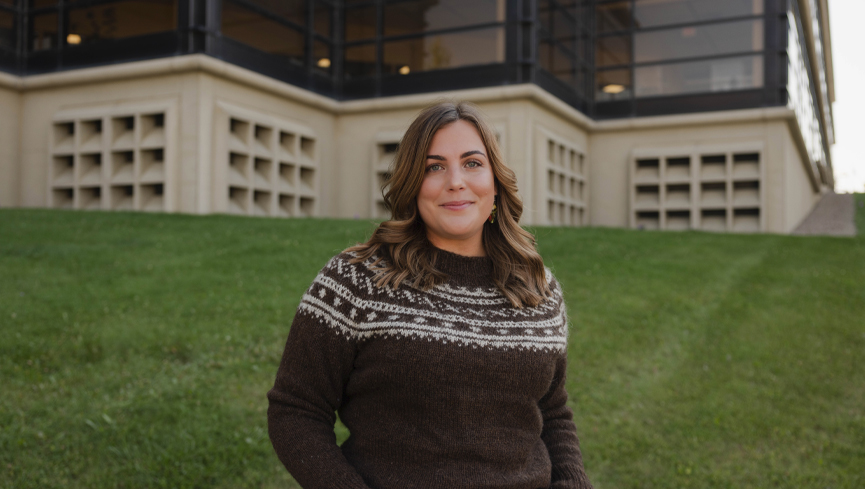Dr. Alex Tetarenko, an astrophysicist in the Department of Physics & Astronomy, has been named a Tier 2 Canada Research Chair (CRC) in Black Hole Astrophysics, and Dr. Amy Mack (BA ’13, MA ’16), assistant professor in the Department of New Media, has been named a Tier 2 Canada Research Chair in Digital Extremism.
The recent announcement by the Honourable Mélanie Joly, Minister of Industry and Minister responsible for Canada Economic Development for Quebec Regions, was part of $690 million invested in science and research funding across Canada. Of that amount, $198 million will support 259 new and renewed CRCs like Tetarenko and Mack.
In addition to being named Canada Research Chairs, the pair will also receive funding for infrastructure through the John R. Evans Leaders Fund (JELF) from the Canada Foundation for Innovation.
“This recognition reflects the high calibre of research taking place at the University of Lethbridge,” says Dr. Dena McMartin, vice-president research. “These Canada Research Chair appointments honour the achievements of Dr. Tetarenko and Dr. Mack and illustrate ULethbridge’s commitment to advancing knowledge and understanding in a broad range of fields from astrophysics to new media.”

Tetarenko is an internationally recognized researcher in high-energy astrophysics. She has built her research program by using innovative methodologies to investigate black holes.
“My research focuses on developing creative new ways to study jets of material launched from stellar-mass black holes in our galaxy and extract vital new information about black-hole physics,” says Tetarenko. “This program will further enhance the growth of the Canadian astronomy talent pool by training postdoctoral fellows, graduate students and undergraduates, and have a wide-reaching impact in Canada and internationally.”
Tetarenko will receive $71,233 from the JELF for high-performance computing resources needed for her research lab.

“In an era of democratic backsliding and rising authoritarianism, we need to ensure that academic knowledge about the far right and other reactionary, anti-democratic movements is used effectively by stakeholders to disrupt radicalization and promote trust and social cohesion in our communities. This needs to be a whole-of-society approach that includes policy makers, tech companies, practitioners, educators, community advocates and the public,” says Mack.
Mack will receive $123,435 through JELF to set up her research lab.
